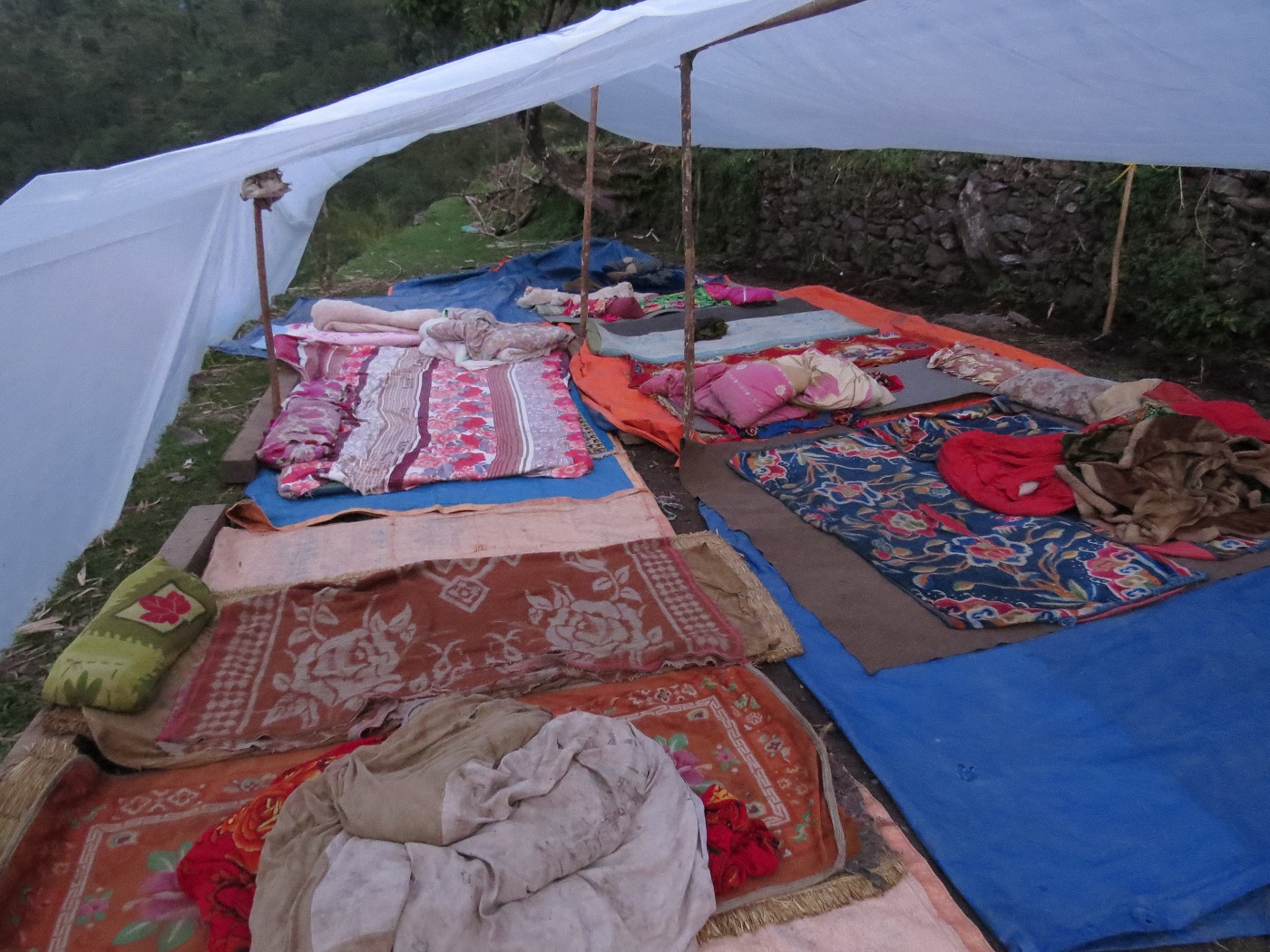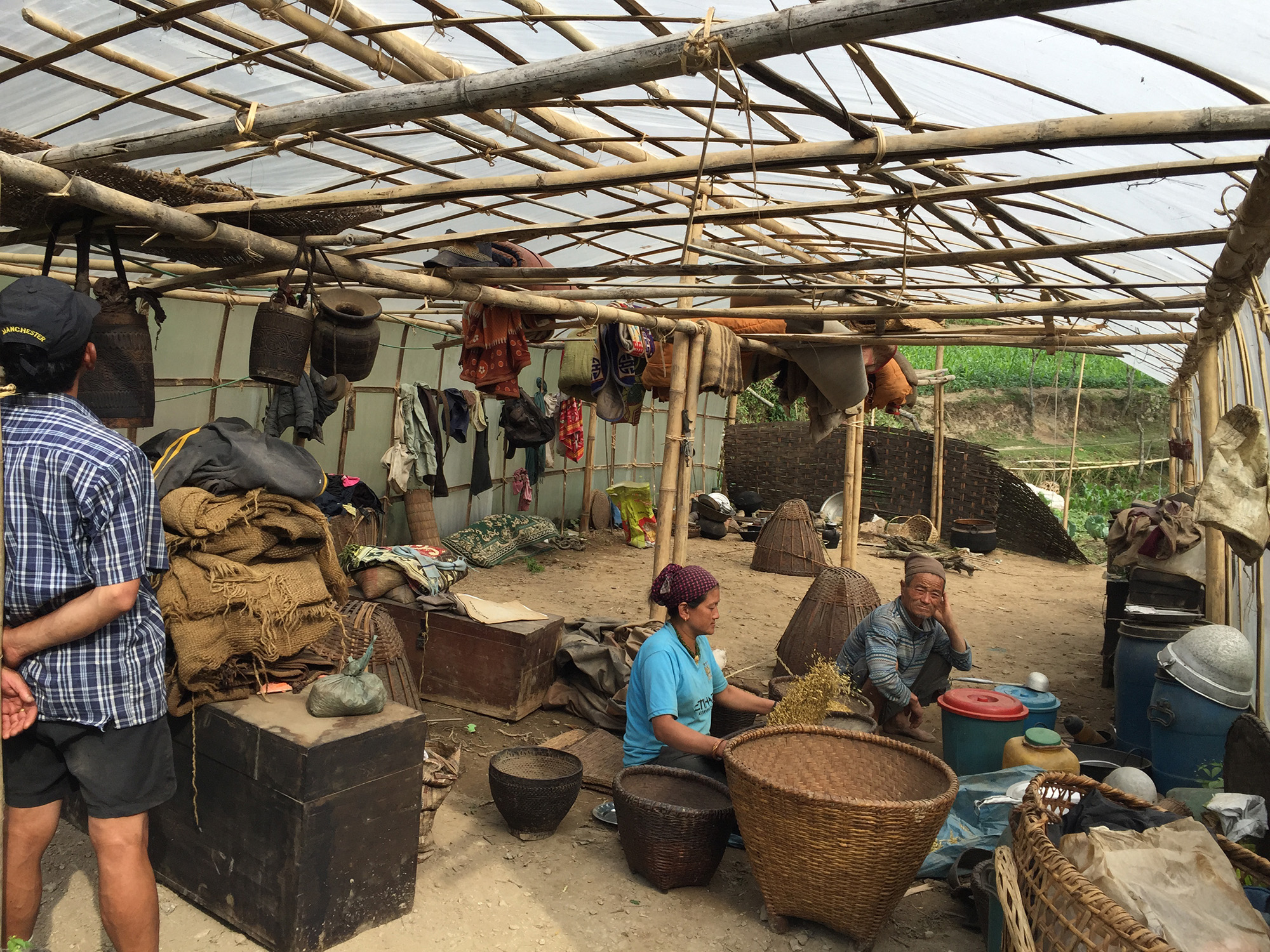Schools were badly damaged, with the one in the hamlet of Lop razed to the ground and the school being run under tarpaulins;
the roof of the dispensary was pierced by a large stone;
the bridge is intact, but its foundations are threatened by the collapse of the natural dam of Lake Imja at the foot of Island Peak.
The inhabitants live under poor quality tarpaulins that will not withstand the monsoon, or under their tomato greenhouses. They are also at risk of landslides as water penetrates cracks in particularly steep terrain. They are worried about their crops and their roads…
They are also very affected psychologically, by the destruction of their property but above all by the constant fear of aftershocks, which they are told will be frequent for a year.
What can we do for them?
First of all, tell them that we’re thinking about them; that’s probably what they need first.
We had underestimated the distress that followed the relative euphoria of being alive just afterwards, but the aftershocks have dented their morale. Letters like this one from our association, telling them what we are going to do, can give them some hope. We hope to be able to go there in October (this is not possible during the monsoon season) to show them our friendship and support. Tourism, the main source of income for these Khumbu villages, has suffered a considerable drop (destruction of lodges, numerous cancellations, etc.), and resuming the treks is also a way of helping them and showing them that we haven’t forgotten them.
Continue to raise funds to help with reconstruction: first and foremost public buildings such as schools, which we have a duty to rebuild to earthquake-proof standards (they could also be used as shelters in the event of another disaster). We are in contact with a foundation that is helping to rebuild using 90% of the debris, training villagers in these techniques and involving local masons and carpenters. This reconstruction will take around 3 years. During this time a good quality temporary shelter is needed: this will be our initial outlay.
Of course, the dispensary needs to be repaired so that it can continue to function. We also need to think about the damage to crops, paths and terraces. For the moment, they are not too worried about food, as they live largely self-sufficiently, but they will no doubt need seeds and tools…
The scale and duration of the task is far beyond our capabilities, and we will be stepping up our cooperation with the other associations working in Basa to optimise our aid.
In keeping with our usual practice, we will keep our donors informed about the use of this fund and the progress of the reconstruction.




